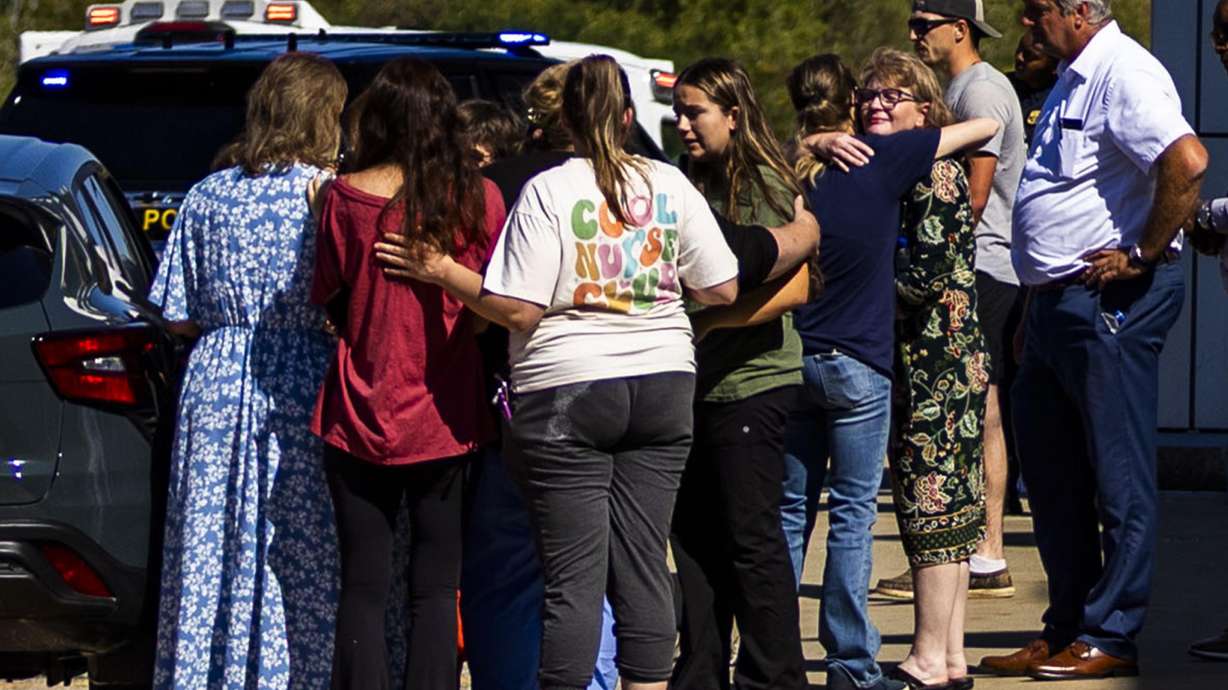RIVERTON — With so many heartbreaking headlines lately, the church shootings in Michigan, the shooting of Charlie Kirk and even the recent death of an elementary student in Provo Canyon last week, it’s not just adults who feel the weight of the news. Children do, too.
“We are definitely (seeing) an increase in kids and teens the past few months and year,” said Tracie Penunuri, a licensed clinical social worker and founder of Mountain View Family Therapy in Riverton. “The way that they cope is different than adults. It’s a big struggle.”
Penunuri said many parents want to shield their kids from tragedy, but in today’s world, that is nearly impossible.
“The exposures, they’re constantly there,” she said. “They’re going to hear about it on their phones. They’re going to see it as they walk past the living room on the TV. They’re also going to hear it at school from their friends and all of their perceptions and interpretations.”
That’s why she encourages parents to talk to their children and ask them how they’re doing.
“It’s really, really important that as adults, we get ahead of that, and we have some conversations with them, and we’re really open and encourage that communication,” said Penunuri. “That is a key, key important responsibility of all the adults in kids’ lives, to reassure them that they’re safe, that we’re going to do everything we can to keep them safe.”
She said parents should also watch for sudden changes in their children, like withdrawing, lashing out in anger, becoming impulsive or struggling with sleep.
“If you see your child doing something that’s different than is their norm, that’s the first place you want to start,” she said.
And when kids don’t have the words to explain what’s happening inside them, therapy can give them another language.
“Play is the language of children,” said Penunuri. “We have special toys, special activities and things in the play therapy room that are set up for the child to be able to reenact. In some ways it’s very literal reenactment, and sometimes it’s a more figurative reenactment. But we’re able to ask some guiding questions and make some observations and reflect what we’re seeing. And the child becomes more and more comfortable, and they start to pull that resilience they have within themselves.”
Building resilience, Penunuri said, is important, and it doesn’t always have to happen in a therapy room.
“Get out. Go see these beautiful fall colors right now that we have,” she said. “Get your children out. Go out. Take a walk. Be around other people. Connect. All of those things, again, build that resiliency muscle.”
Her office often works with the Jordan School District to help with therapy sessions for students.
One of the most rewarding parts of her job is seeing children come out the other side.
“It is incredible to be able to see someone suffer less. It’s incredible. You know, there’s a lot of suffering in the world that you can’t do much about. We all just kind of have to deal with it. But unnecessary suffering is the worst kind of suffering,” she said.
And perhaps the most important reminder she has for anyone is that no parent or child has to go through this alone.
“One-hundred percent,” she said. “We are not wired to do all of this stuff alone. We are connecting beings. That is who we are at our very core. When we do that, we heal so much faster.”
The Key Takeaways for this article were generated with the assistance of large language models and reviewed by our editorial team. The article, itself, is solely human-written.

